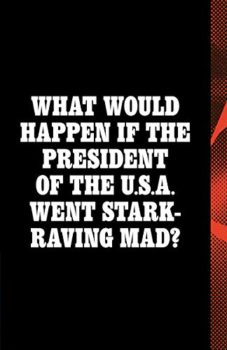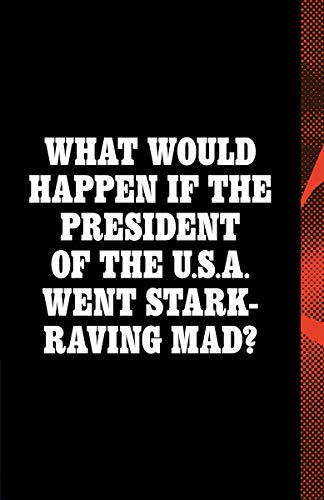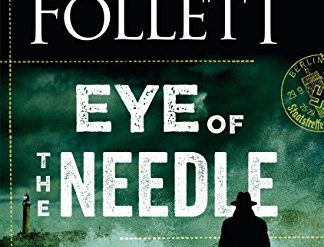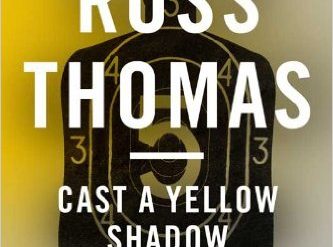
Its title is Night of Camp David, but the publisher topped off the cover with a teaser page to emphasize the novel’s relevance to the madness in Washington today. “What would happen if the President of the U.S.A. went stark-raving mad?” the teaser reads. The implication is that this novel anticipated Donald Trump.
Estimated reading time: 5 minutes
In fact, this political thriller published more than 50 years ago is difficult to relate to today’s circumstances. Only in the most general sense can it be said that the novel anticipated Donald Trump. The psychotic behavior of Fletcher Knebel’s President Mark Hollenbeck bears little resemblance to that of the man in the Oval Office today. More to the point, the responses of the people surrounding Hollenbeck and Trump’s sycophants in the White House and Congress are dramatically different. Apparently, the superficial similarities sell books. Well, why not? Maybe this book will cause at least a few readers to realize for the first time just how crazy things are in Washington, DC today.
A novel that reflected the political concerns of the day
The author’s novels typically were grounded in the political circumstances of the time. Night of Camp David is a prime example.
Following the assassination of President John F. Kennedy, Congress proposed what soon became the 25th Amendment to the US Constitution. As no doubt you know, that amendment provides for the procedures to deal with a vacancy or disability in the presidency or vice-presidency. The text was sent to the states for ratification on July 6, 1965 and formally adopted by Congress on February 10, 1967. Night of Camp David was first published January 1, 1965 and spent 18 weeks on the New York Times bestseller list that year. Pundits generally assumed that the states would ratify the amendment, but the popularity of the novel couldn’t have hurt.
Night of Camp David by Fletcher Knebel (1965) 347 pages ★★★★☆
A political thriller set in the Johnson years
In 1965, the American people placed a great deal of trust in their government. The disillusionment that so many today identify with the 1960s didn’t gather steam until tens of thousands of American soldiers had died in the war in Vietnam and the duplicity of President Johnson had become clear. The release of the Pentagon Papers in March 1971 and the surreal events of the Watergate scandal (1972-74) drove the final nails into the coffin of the public’s confidence in the federal government. In Knebel’s novel, set before all those events, most of the men surrounding President Hollenbeck as he goes off the rails simply refuse to believe what they’re observing. And that’s no surprise given the temper of the times.
A novel that anticipated Donald Trump, five decades ago?
In Night of Camp David, President Mark Hollenbeck displays classic symptoms of paranoia on numerous occasions. It’s obvious from this vantage point that he would be judged, as Amazon’s teaser would have it, “stark raving mad.”
Clearly, President Donald Trump frequently comes across as nuts as well. And more than 60,000 mental health professionals signed a petition in 2017 that begins, “We, the undersigned mental health professionals, believe in our professional judgment that Donald Trump manifests a serious mental illness that renders him psychologically incapable of competently discharging the duties of President of the United States.”
Other psychiatrists and psychologists have objected that no mental health professional can pass judgment on anyone without directly interacting with them in a clinical setting. Passing judgement requires a thorough interview that may take hours. And the petition was brushed off by Trump’s supporters as a political gambit. Professional opinion aside, the President’s behavior is obviously erratic, narcissistic, legally questionable, and sometimes dangerous to US interests—but those symptoms bear little resemblance to Hollenbeck’s classic paranoia. And, unlike Trump, Hollenbeck was surrounded for the most part by men of obvious integrity and measured judgment.
Ultimately, it seems to me, what matters is not whether Donald Trump is clinically insane (or whatever the current term of art is in the mental health field). Far more important are the grim consequences of his actions. And those consequences, I hope, will prove to be his undoing.
About the author
Fletcher Knebel co-authored the runaway bestseller of 1962, Seven Days in May. The book portrays an attempted military coup in Washington. John F. Kennedy was in the White House at the time, and his relations with the Pentagon and the CIA were so badly damaged that many readers found the story entirely credible. The book spent most of 1962 on the New York Times bestseller list. Knebel (1911-1993) was a prominent political columnist. He wrote twelve novels. Is it reasonable to think that Knebel would believe that his novel would anticipate Donald Trump? I’m not so sure.
For related reading
For more relevant information about today’s political scene, go to 15 books about Donald Trump and his impact on American democracy.
You might also be interested in:
- The five best novels about politics
- Top 20 popular books for understanding American history
- Top 10 nonfiction books about politics
- 20 excellent standalone mysteries and thrillers
And you can always find my most popular reviews, and the most recent ones, on the Home Page.



























